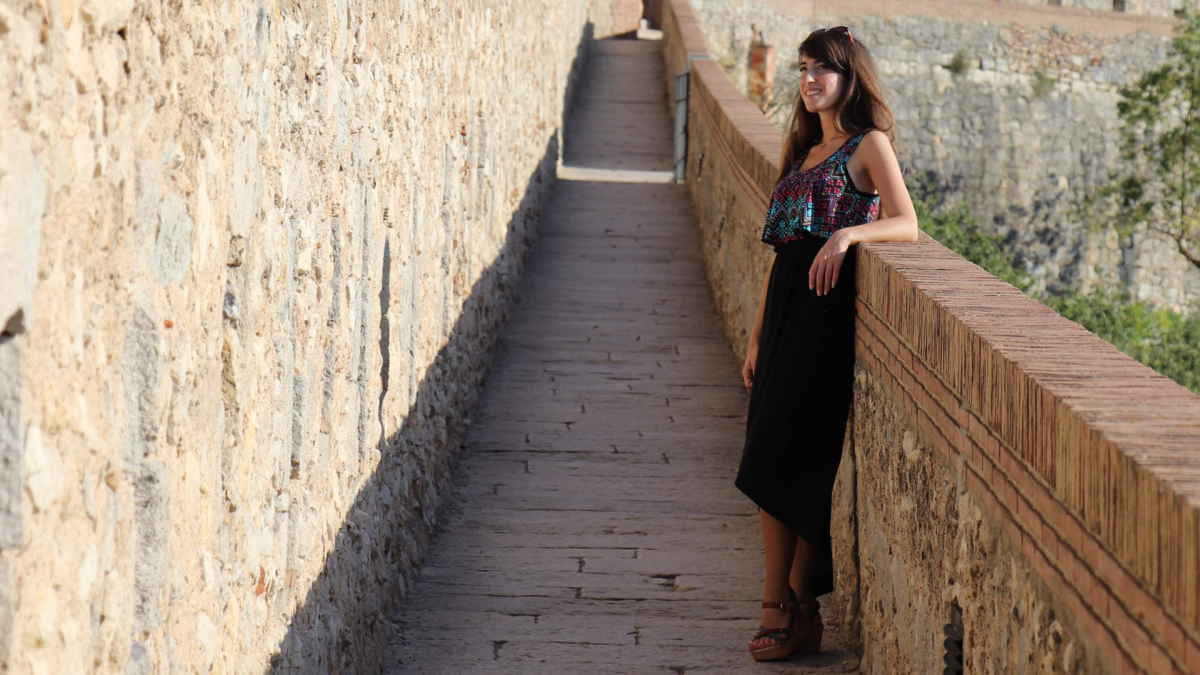Thousands of kilometres from Canada, Angela Marti can only watch with concern as the number of cases and deaths back home from COVID-19 continues to rise, with some Canadians defying orders to self-isolate and physically distance themselves from others.

She knows the dangers of complacency amid a pandemic.
The Londoner is completing her PhD in medicine in Spain, a country that has been hit particularly hard by COVID-19.
Spain currently has more than 47,500 confirmed cases of COVID-19, fourth behind China, Italy and the United States. On Tuesday alone, the number of new confirmed cases shot up by nearly 6,600.
On Wednesday, the country’s death toll eclipsed that of China, jumping by more than 700 in one day. In the capital, Madrid, the rapid increase in deaths from the disease has forced city authorities to commandeer an indoor ice-skating rink for use as a makeshift morgue.
Spain is now second only to Italy in the number of dead, with over 3,400. The death toll in Italy stands at just over 7,500.
“In the beginning, it was sort of a feeling of disbelief,” said Marti by phone from Barcelona on Wednesday. Marti moved to Spain five years ago.
“I work in a hospital, so up until the moment that they kind of forcibly sent all of us home, we were still kind of living under the assumption that things were not going to get this bad.”
The country has since declared a state of emergency, and its national health care system has been overwhelmed. Protective equipment and COVID-19 tests have been in short supply for weeks.
Marti said she personally knows people, young people, who have tested positive for COVID-19. One of them is a doctor in her hospital unit.
“She seems to be doing better now,” Marti says. “However, she is still stuck quarantining. So we shall see.”
“Most people went around with the belief that, ‘oh, it’s just another flu, we’ll be fine. We don’t have to worry about anything,'” Marti said.
“I saw how badly the situation can spiral, particularly working in the health care system.”
Medical workers, infected in overburdened hospitals and intensive care units, account for more than 6,400, or about 13 per cent, of the country’s 47,600 total cases, according to Spain’s health ministry. The tally is about 1 per cent of the health system’s workforce. At least three workers have died.
Earlier this month, in a bid to combat the pandemic, Spain’s government implemented a two-week national state of emergency, closing restaurants, bars and most retail shops, and restricting movements to essential errands and commuting to and from work.
“We can’t leave our houses unless there is an exceptional case, such as going to the grocery store, and you can be fined or be arrested,” Marti said.
On Sunday, one week into the state of emergency, Prime Minister Pedro Sanchez said he would seek to extend it to April 11. Sanchez’ wife and at least three members of the Spanish Cabinet, including the country’s deputy prime minister, have contracted the disease.
Marti said she hoped other countries learn from Spain and Italy, where stay-at-home restrictions have also been implemented, in how they choose to respond to the COVID-19 pandemic, adding she’s seen first-hand what can happen in a country where people don’t take it seriously.
“We had the same issue that I see happening worldwide, where when quarantine was originally issued, and the emergency state was put in place, people were kind of considering it like a vacation,” Marti said.
“So they went to the beach, they travelled around other parts of Spain. And well, obviously, that only ended up spreading the virus faster.”
“It’s definitely been hard to see Canada, for example, which is several days behind the pandemic, kind of reacting, but perhaps not in the way that I wish that they were.”
In Canada, provincial and local governments, including London, have taken increasing steps to force people to stay apart and at home.
States of emergency have been declared, gatherings of certain sizes banned, non-essential services ordered closed, and fines and arrests threatened to individuals and businesses who don’t adhere to the measures.
In Ontario, provincial police have said they will intervene if people are found to be flouting a ban on gatherings of 50 people or more, while in Haldimand and Norfolk counties, officials there have limited gatherings to 10 people or less. In Nova Scotia, its five or less.
Some jurisdictions have also warned of punishment for those caught returning from travel without self-isolating.
In Newfoundland, a 53-year-old woman from Corner Brook was taken into custody on Tuesday and placed in jail overnight after she allegedly failed to self-isolate after returning from a trip as required under the province’s Public Health Protection and Promotion Act.
On Wednesday, the federal government announced all people arriving in Canada will have to be quarantined for two weeks or face arrest and fines in a bid to flatten the curve of growth of COVID-19.
— With files from Michael MacDonald of The Canadian Press, and Colleen Long, Aritz Parra, David Rising, Joseph Wilson of The Associated Press.

Questions about COVID-19? Here are some things you need to know:
Health officials caution against all international travel. Returning travellers are legally obligated to self-isolate for 14 days, beginning March 26, in case they develop symptoms and to prevent spreading the virus to others. Some provinces and territories have also implemented additional recommendations or enforcement measures to ensure those returning to the area self-isolate.
Symptoms can include fever, cough and difficulty breathing — very similar to a cold or flu. Some people can develop a more severe illness. People most at risk of this include older adults and people with severe chronic medical conditions like heart, lung or kidney disease. If you develop symptoms, contact public health authorities.
To prevent the virus from spreading, experts recommend frequent handwashing and coughing into your sleeve. They also recommend minimizing contact with others, staying home as much as possible and maintaining a distance of two metres from other people if you go out.
For full COVID-19 coverage from Global News, click here.












Comments